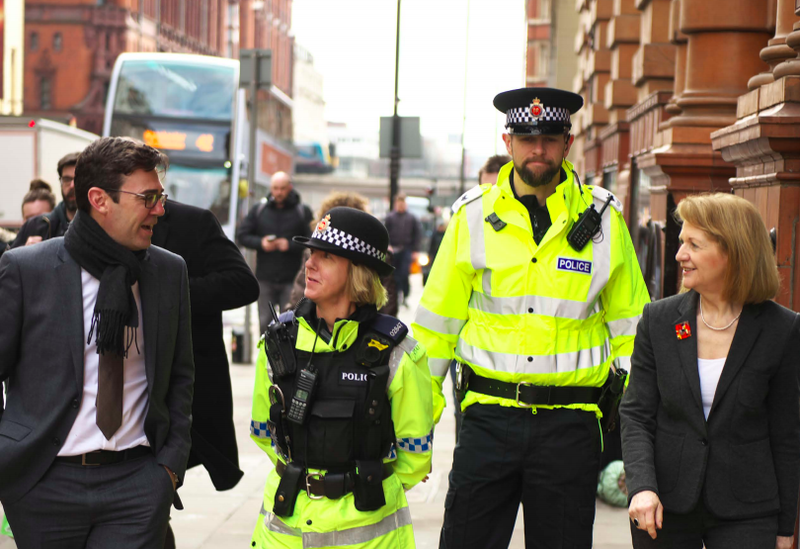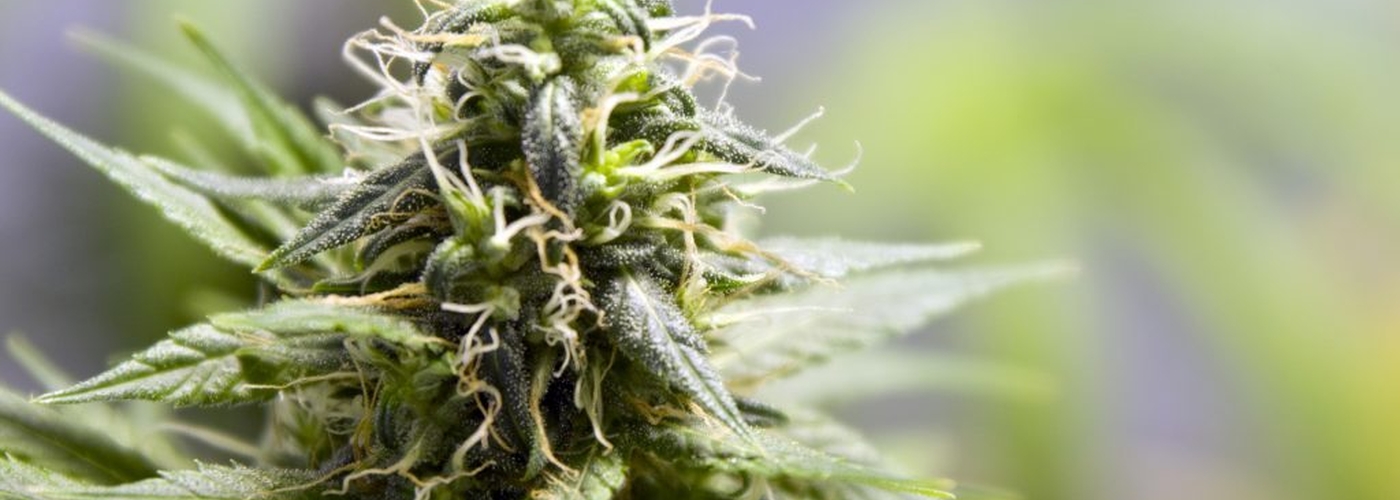Jonathan Schofield hits a wall concerning on-street weed abuse in Manchester
Manchester, like all industrial cities, used to be famous for its stink: a heady aroma of coal, chemicals, brewing and God-knows-what. Now, everywhere you go, you get a vile smell of rotten flowers.
We make an assessment on how best to respond based on the threat, harm and risk posed to the public
That's the smell of drugs of course. Mainly of skunk. Skunk derives from unpollinated cannabis plants which naturally contain higher levels of tetrahydrocannabinol (THC). The latter is the active ingredient which gives the true stoner what they’re after. Skunk delivers the kick more and can lead to the beautifully named ‘couch-lock,’ where the smoker is too high or stoned to get off the couch and function properly.
A report in 2016 found more than 90% of police seizures in the UK were of the high potency marijuana, aka cannabis, aka skunk.
The thing is, the smell is so obvious that it quickly leads to the source, the smoker. No bloodhounds are needed for tracking here. So why aren’t people fined, cautioned even arrested, for their flagrant law-breaking?
Maybe the Council could do something? The city centre has an Alcohol Restriction Zone after all, a byelaw, and Council-employed enforcement officers. Thus on-street drinking, outside the terraces of licensed premises or during events with temporary licences, is banned. Fines can be issued.
Drugs are a different matter. Obvious, often ostentatious, drug use, is not a Council responsibility in any way. Cannabis is a Class B drug. The council has no jurisdiction to enforce and can't 'prohibit' something which is illegal. The responsibility for enforcement is a matter for Greater Manchester Police. Strangely, I have seen Police officers pour away booze from the wayward on-street drinking.

Criss-crossing the city centre every day I might get 10 or more blasts of skunk and I can usually see exactly where the origin is and the individual concerned. Yet, I have never seen an arrest or even police talking to an individual. In Piccadilly Gardens I've seen police standing within nostril range of perpetrators. That’s not to say the police don’t act on occasion, because they do. But there is hardly a zero tolerance approach to what is a clear act of law breaking.
Do the police ever stop people smoking illegal drugs on city streets, or given resourcing at the moment, is it considered too trivial a matter to spend resources upon? If police officers are on the beat however, and they pass people ostentatiously smoking drugs would they take any action?
In answer, Superintendent Andy Sidebotham said: “With thousands of fewer officers across Greater Manchester and an increased complexity of demand, we have had to make changes to the way we work to meet the public’s need.
“When reports are made to police, we make an assessment on how best to respond based on the threat, harm and risk posed to the public; and we remain committed to supporting those who are the most vulnerable in our communities.
“We will continue to take the misuse of drugs, particularly in public areas near to vulnerable people or places, very seriously and have encouraged our officers to increase the use of intelligence led stop and search.
“We also focus on prevention as well as working with partners and communities to problem solve the factors that contribute to this issue. We will continue to take a collaborative approach to keep the people of Greater Manchester safe and provide the best service we can to those we need us most.”

You have to have sympathy for the police. As we pointed out a couple of years ago GMP is down a quarter in terms of officers from 8000 to 6000 while during the Cameron/May austerity years, in other words from 2010, the population of Greater Manchester grew by, at least, 300,000 to 2.8m. The police response is now based on ‘threat, harm and risk’ not on the fact of law-breaking per se. In other words, a blind eye is turned on some offences as there are greater priorities.
Boris Johnson has promised 20,000 extra officers. Until those new legions arrive (not that those numbers are likely to do anything but help stabilise the situation) its clear we’ve going to have put up with our noses being assailed by the ghastly smell of skunk. There is not enough 'threat, harm and risk' in that rank, odoriferous assault to lead to more direct action, despite it damaging the city's reputation and our enjoyment of a city centre stroll.
Is it a bit silly to worry about a nasty smell on a city centre stroll? Possibly. But nagging in the back of one's mind is the thought that, if zero tolerance were the policy, then maybe we'd be rid of many other acts of anti-social behaviour along with that strong whiff of illegality.
The heady old industrial scents were largely removed by the Clean Air Acts of the 1950s. Maybe that's the solution, maybe councils should use the powers contained in those laws. Fine skunk fiends as polluters rather than druggies because, as it stands, it'll be a long time before British cities come up smelling of roses.
















